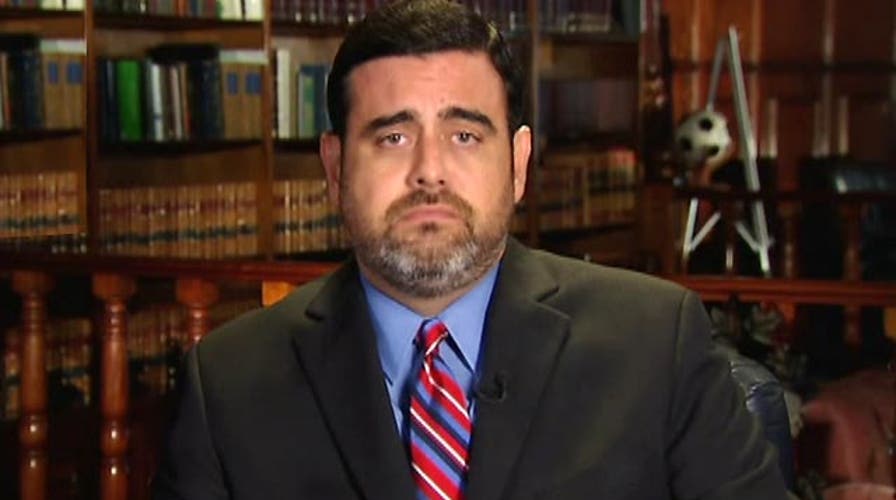Inside jailed Marine's new legal strategy
The new attorney for Sgt. Andrew Tahmooressi gives a glimpse on how he hopes to win the Marine's freedom. #MarineHeldinMexico
This is a rush transcript from "On the Record," June 25, 2014. This copy may not be in its final form and may be updated.
GRETA VAN SUSTEREN, FOX NEWS HOST: U.S. Marine jailed in Mexico fighting the battle of his life, a battle for freedom after languishing in a Mexican prison for three months. Sergeant Andrew Tahmooressi has hired a new lawyer with a new defense strategy. And lawyer Fernando Benitez joins us from Tijuana, Mexico. Good evening, sir.
FERNANDO BENITEZ, ATTORNEY FOR SGT. ANDREW TAHMOORESSI: Good evening. Thank you for having me.
VAN SUSTEREN: Thank you for joining us. Have you had a chance yet to meet with your client?
BENITEZ: Yes, I have. I met with him last Saturday for about an hour.
VAN SUSTEREN: What is the -- what is the current strategy? And I'm well aware at the facts that lots of things can happen in a case, but what is your current thought about how to get him out?
BENITEZ: OK, well, we are working on two prong approach here. But, it's going to be based on him giving his rendition of what happened on the 31st, and we will endeavor to prove all stages of what happened for the immediate 40 seconds before he drove into the customs inspection area and what happened inside the customs inspection area. And I think that once the specifics of those facts come to light, we will have a good shot at proving that there is no malicious intent in his conduct.
VAN SUSTEREN: Is the burden of burden of proof in your system of justice on the accused or is it on the accuser?
BENITEZ: Andrew is innocent until the state proves that he is not. It might not seem that way and reason for that is that weapons, firearms offenses here. Sometimes are not afforded bail. And that's the case with Andrew. So, since he needs to stand trial while incarcerated it may seem like there is preconceived notion about guilt but that's not the case. It will be upon the state to prove that he is guilty. We don't have to prove anything.
VAN SUSTEREN: Well, in the United States, when you are arrested for a crime, is that -- let's say that I'm arrested for something. My lawyer can go to the prosecutor and say, look, this is a bum arrest and here is why. We have a videotape, we have the fact that the registered guns, we have an explanation. He never tried -- whatever the facts are the prosecutor can then dismiss it before it even gets to court. Was that ever -- is that available in Mexico and was that ever attempted?
BENITEZ: It is available. When there is a person that's being detained. The federal prosecutor has 48 hours to decide whether or not to prosecute. Now, within those 48 hours, you have a right to counsel, which was afforded to it Andrew. In his specific case being a foreign national, he is also afforded the right to counselor assistance which was provided immediately. He was afforded the right to a translator of his choice. And he appointed a translator who ultimately became his attorney. And they could have entered evidence during those 48 hours which is what we would have called administrative investigative stage of criminal (ph) procedure. Evidence can be submitted and to try to convince the prosecutor that there is no need to indict. I really do not know the reason why this wasn't done, but it was a chance that there was available but now we're already past that.
VAN SUSTEREN: Do you have the sense that this is business as usual that there's nothing unusual about what has transpired so far or do you think that this is like one really messed up case and it could have been rescued at many different points up until now?
BENITEZ: I can only speak for myself. My defensive strategy is a little bit more on the aggressive side. I try to exhaust every, and any venue available to the defendant under my care. Would I have done things differently? I really don't want to get into that. But let's just say I will do things my way from now on. And I think there will be a change in the heading of this case.

